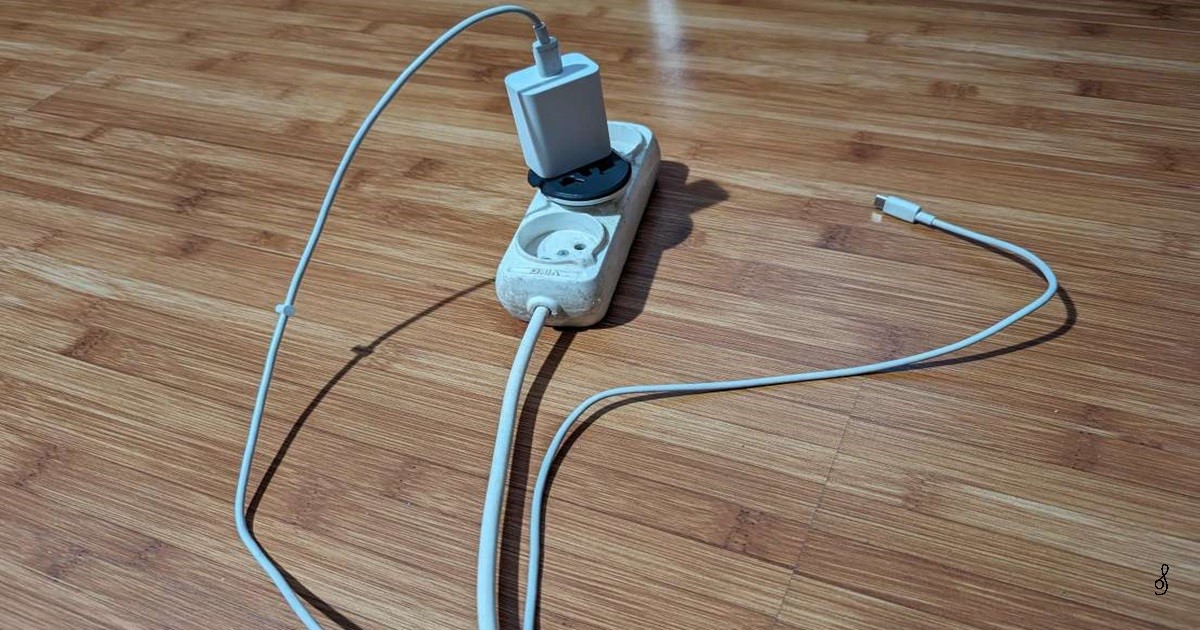
Photo: Nini B./Homemaking.com
We’ve all been there – you yank your phone free from its charger in a hurry, leaving the cable hanging out of the socket. I mean, what’s the harm, right? Leaving your charger plugged in may not seem like a big deal, but it does come with some small but significant downsides. Here’s why it’s good practice to unplug your charger when it’s not being used.
It Still Draws Power – Even When Not Charging
When you leave your charger plugged in without a device, it still draws a small amount of power. This is referred to as phantom power or vampire energy. Although the amount is small—usually less than a watt—over time, those small amounts of wasted electricity can accumulate, especially if you have several chargers left plugged in around your house.
Just to give you some perspective, one single charger left plugged isn’t going to wreak havoc on your electric bill. But if you’re looking to squeeze the most out of your energy bills, unplugging your chargers is an easy way to save electricity during downtime.

Low-Quality Chargers Can Overheat and Pose a Fire Risk
A good quality, reputable, certified charger is built to be safe when when constantly connected. But cheap, uncertified, or damaged chargers can be a safety hazard. Lower-end chargers can also lack proper heat regulation, so they can be prone to overheating, especially if they stay in an outlet for a long enough time.
Although the risk of a charger causing a fire is small, defective chargers or chargers with exposed wires can create hazards. If your charger ever feels warm to the touch or displays any damage (frayed cords, discoloration, or burn marks), you should replace it immediately.
Overloaded Circuits Can Be a Problem – But Not from One Charger
Some people worry that keeping a charger plugged in leads to electrical overload, but a single charger uses so little energy that it’s unlikely to cause any issues. The actual problem arises when several high-wattage devices—like space heaters, microwaves, or kitchen appliances—are plugged into the same circuit.
This is why it is essential that power strips or extension cords are used properly. Some have internal circuit breakers to prevent overheating, but stacking too many devices together can still be a fire hazard. If you have multiple multiple electronics on a single strip, make sure it’s a high-quality surge protector and not just a regular extension cord.
Leaving Chargers Plugged In Can Cause Wear and Tear
Chargers don’t last indefinitely, and leaving them plugged in all the time can gradually degrade the internal components over time. Although this wear and tear isn’t drastic, it can shorten the lifespan of the charger and make it more likely to give out when you actually need it.

Frequent plugging and unplugging can also wear out the outlet itself. If your charger fits loosely into the socket, the outlet could be wearing out and should be replaced.
The Environmental Factor
One charger alone doesn’t contribute greatly to the world’s environment problems, but when millions of people leave their chargers plugged in when they don’t need to, it adds up. In a world that’s turning its attention to minimizing waste and maximizing energy efficiency, every little bit counts. Disconnecting your charger from a power source when not in use is an easy way to conserve energy.
A Simple Habit That Can Benefit You
Leaving your charger plugged in might not seem like a big deal, and in most cases, it’s not a significant safety risk. But unplugging it when it’s not being used can help reduce unnecessary energy waste, prolong your charger’s lifespan, and reduce even the smallest risks of overheating—especially with old or lower-quality chargers.
So, although it’s not an urgent fire hazard, adopting the habit of unplugging your charger is a simple way to practice better electrical safety, conserve a bit of energy, and keep your devices in better condition for longer. A small action today can make a difference in the long run!
There’s even more to watch out for at home — like why you should never put a tea towel on the oven door, a common habit that could be riskier than you think.
